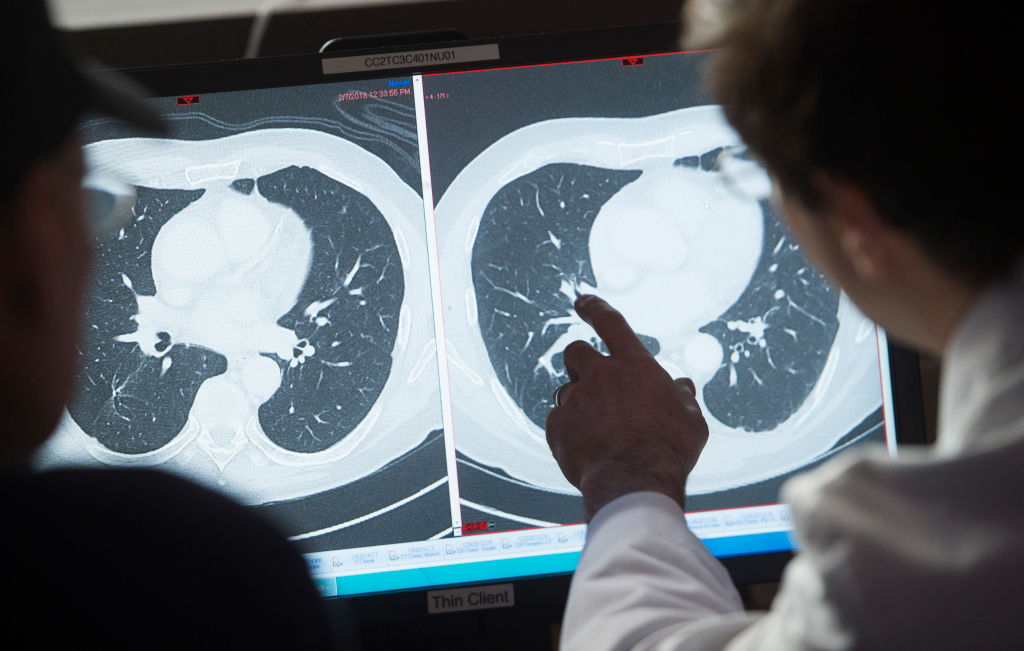The 10 Downing Street press conferences on Covid-19 tend not to show graphs about cancer care. We see various charts by statisticians and epidemiologists, but the impact of lockdown on patients with time critical conditions such as cancer has been largely ignored. The disruption of cancer services is a global phenomenon, but the suspension of screening services and failure to protect cancer services in the UK has resulted in 40,000 less cancers being diagnosed last year, compared to 2019.
The true scale of the cancer backlog has yet to be acknowledged by the UK government, far less prioritised with specific additional funding. Denial could cost lives. Any future cancer strategy simply has to start with an acknowledgement of what has just happened, which came on top of pretty poor pre-pandemic cancer services.
Covid kills. But so does cancer
A report by Cancer Research UK last year, looking at pre-pandemic figures, showed the UK had worse survival rates than many Western countries due to inadequate early cancer detection and a lack of access to optimal treatment. Add to this a shortage of cancer treatment specialists and we see the official target – treating 85 per cent of cancer patients within 62 days of urgent GP referral – has been missed every year since 2014. This system will soon be asked to cope with people whose cancer should have been diagnosed during lockdown, but was not.
There are already reports of an increase in patients with later-stage cancers due to delays in diagnosis and, not only will this be devastating for these patients and their families, it will further reduce our mediocre survival rates. It is unthinkable that the small incremental gains that have been made by optimisation to screening, diagnosis and treatment of common cancers during my career have been negated by lockdown. Ministers must accept the scale of the problem – and find viable solutions to develop a comprehensive cancer strategy that goes much further than simply focusing on reducing cancer waiting times, recruiting additional cancer specialists, and improving access to imaging and radiotherapy.
This crisis – and make no mistake, this is what we are facing – needs a new approach. I’d suggest personal risk assessment and risk reduction strategies. We already understand many of the risk factors for common cancers, but how many people know that obesity and alcohol are risk factors for both bowel and breast cancer? How many know that more than 50 per cent of bowel cancers can be prevented? We need to talk about cancer more often to make these risk factors more widely known, with access to support structures that promote behavioural change to lower individual risk.
Screening can be updated to take account of an individual’s risk. Current screening programmes start at a certain age, when the average 10-year risk is deemed to be high enough for screening to be successful. But many reach that level of risk at a much younger age. By using family history and lifestyle risk scores, and DNA tests that detect tiny errors (SNPs) that increase the risk of a specific cancer, we can develop risk-stratified screening programmes that focus our attention on those at higher personal risk of specific cancers. This should help diagnose many younger patients, whose cancer diagnosis will have a major impact on their life, family and work.
When I started as a consultant in 1995, approximately one in ten women attending my one-stop breast clinic would be diagnosed with breast cancer. Now, it’s closer to one in 20, with little increase in cancers diagnosed: so we’re screening twice as many. Many breast units are now completely overwhelmed, with inadequate resources to provide all patients with all tests at the first visit. We therefore need to find better ways to select symptomatic patients for urgent assessment. For example, in the NICE FIT study, the FIT test currently used for bowel screening was used to triage patients with suspected symptoms of bowel cancer.
A negative test at the lowest cut-off point almost excluded the likelihood of bowel cancer being present, so this test could be used by GPs to decide who to send to hospital for further investigation. Other diagnostic pathways could be optimised in a similar fashion, with those at higher risk progressing to rapid access, streamlined diagnostic pathways.
Covid kills. But so does cancer – and we need to keep the realistic threats of all disease in mind when we consider how to best save life. There is so much that ministers can do to to provide information, allow people to understand their personal risk and provide access to updated screening and diagnostic pathways that harness recent developments in science and technology.
If we are to rebuild Britain after Covid, we ought to rethink cancer care – and worry about avoidable cancer deaths just as much as we now worry about avoidable Covid deaths. We have the science, we have the experts. We need the strategy, the investment – and, above all, ministerial attention. There is all too much to do.






Comments